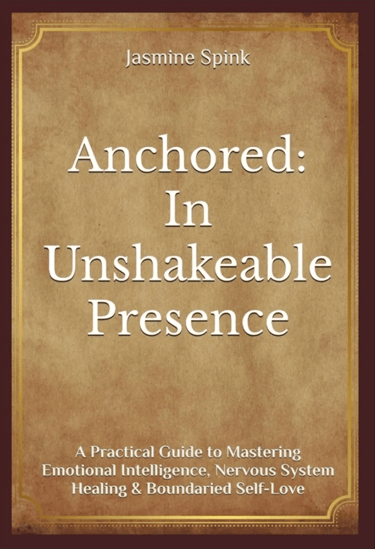8 Power Moves of Highly Emotionally Intelligent People
Discover 8 powerful habits of highly emotionally intelligent people. Master your emotions, boost relationships, and thrive in every area of life.
Jasmine Spink
8/10/20254 min read


Emotional intelligence (EQ) isn’t just a soft skill it’s a power move in itself.
It’s the ability to understand your emotions, regulate your reactions, connect with others deeply, and navigate life’s chaos with grounded confidence.
In boardrooms, relationships, and personal growth journeys, EQ often outweighs IQ. It’s the quiet advantage that separates the people who crumble under pressure from those who rise gracefully above it.
So, what’s the secret?
Here are 8 power moves highly emotionally intelligent people use daily and how you can make them part of your own life.
What Emotional Intelligence Really Means
Before we dive in, let’s get clear on EQ. Psychologist Daniel Goleman identifies five core components:
Self-awareness – Recognizing your emotions and how they affect your thoughts and behavior.
Self-regulation – Managing your impulses and adapting to change.
Motivation – Staying focused on long-term goals, not just short-term comfort.
Empathy – Understanding and caring about others’ emotions.
Social skills – Building healthy relationships and influencing without manipulation.
EQ isn’t about being “nice” all the time it’s about showing up consciously, even when life throws its worst at you.
1. They Pause Before They React
Think of your reaction time like a muscle. Emotionally intelligent people have trained theirs to pause, even if it’s just for a breath.
Why it works: That pause creates space between stimulus and response - where conscious choice lives. As Viktor Frankl said, “In that space is our power to choose our response. In our response lies our growth and our freedom.”
Example: Your coworker sends a blunt email that feels rude. Instead of firing back defensively, you pause, breathe, and re-read it. You realize their tone might reflect their stress, not hostility toward you.
How to apply: Count to three before responding in tense situations. Let silence be your strategy.
2. They Name What They’re Feeling - Without Judging It
EQ leaders don’t label emotions as “good” or “bad.” They see them as signals, not verdicts.
Why it works: Naming emotions (“I feel anxious,” “I feel disappointed”) helps the brain process them faster and reduces their intensity.
Example: Instead of saying “I’m fine” when you’re not, you might say, “I’m feeling overwhelmed today, but I’m taking it one step at a time.”
How to apply: Set an alarm twice a day to do a quick emotional check-in. Name the emotion without attaching a story or judgment to it.
3. They Ask Questions Before Making Assumptions
Emotionally intelligent people replace knee-jerk conclusions with curiosity.
Why it works: Assumptions shut conversations down. Questions open them up and reveal the truth.
Example: Your partner comes home quiet. Instead of thinking, “They’re mad at me,” you ask, “Hey, you seem quiet.. did something happen today?”
How to apply: When you catch yourself assuming, replace the thought with, “What else could be true?”
4. They Set Boundaries Without Guilt
EQ means knowing your limits and protecting them, without apologizing for it.
Why it works: Boundaries preserve your energy, protect relationships from resentment, and maintain self-respect.
Example: Saying, “I’d love to help, but I can’t commit to that right now,” instead of overloading yourself and burning out.
How to apply: Write three non-negotiables for your time, energy, and well-being. Practice saying “no” kindly but firmly.
5. They Take Responsibility for Their Energy
Instead of blaming others for their moods, emotionally intelligent people own the energy they bring into a room.
Why it works: Self-awareness makes you a leader of your own state, others feel safer around you.
Example: Before a team meeting, you notice you’re irritable from a stressful morning. You take a 5-minute walk and a few deep breaths to reset before walking in.
How to apply: Adopt a pre-interaction ritual: deep breathing, music, or movement to align your energy.
6. They Listen to Understand, Not to Reply
In a world of half-listened conversations, truly listening is a rare form of influence.
Why it works: When people feel heard, they trust you. Trust builds influence and connection.
Example: A friend shares their problem, and instead of jumping in with advice, you ask, “What’s been the hardest part for you?”
How to apply: Repeat back a summary of what you heard to confirm understanding.
7. They Re-frame Challenges as Opportunities for Growth
High EQ doesn’t mean you don’t face setbacks, it means you don’t get stuck in them.
Why it works: Re-framing shifts your brain into problem-solving mode instead of rumination.
Example: A job rejection becomes feedback for skill improvement, not a sign of inadequacy.
How to apply: Ask yourself, “If this were happening for me, not to me, what might it be teaching me?”
8. They Practice Consistent Self-Reflection
Self-reflection is the maintenance work of EQ - it keeps you aligned and self-aware.
Why it works: Regular self-audits reveal patterns, celebrate progress, and keep your growth intentional.
Example: Sunday evenings, you review your week: “When did I act from my best self? When did I react from fear?”
How to apply: Keep a journal with three prompts:
What went well this week?
What challenged me?
What am I grateful for?
Why These Power Moves Work Together
One move is powerful.. eight together are transformative. They build emotional resilience, deepen relationships, and give you the quiet confidence to handle anything life hands you.
Like compound interest, small daily practices in emotional intelligence create massive long-term gains.
Your 7-Day EQ Challenge!
For the next week:
Day 1: Practice the pause.
Day 2: Name your emotions.
Day 3: Replace assumptions with questions.
Day 4: Set a boundary.
Day 5: Reset your energy before a conversation.
Day 6: Listen without planning your reply.
Day 7: Reflect on your week.
Notice how your interactions, energy, and confidence shift.
If you’re ready to continue forward in your journey to master your emotional intelligence on a deeper level, check out my book: Anchored in Unshakeable Presence,
your step-by-step guide to emotional freedom.


In this book, you’ll discover how to:
Master your emotions and respond with grounded clarity instead of reactivity.
Release performance-based worth and reconnect with who you truly are.
Build unshakeable self-trust and internal safety, no matter the chaos around you.
Set boundaries that protect your peace without guilt or fear.
Integrate practical tools, self-reflection prompts, and daily practices that create lasting change.
If you didn't have to be anything for anyone else,
who would you be?
Contact
Email:
jasminespink28@gmail.com
Cell:
587-444-2234
© 2025. All rights reserved.
